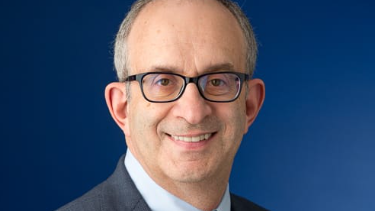
Don’t Blame the Students
Fallout from the disruptive protests at Columbia University and other “elite” universities continues, with the traditional game of right and wrong playing out on campus, in the courts, in Congress and beyond.
Perhaps it would be more productive to finally admit what is at fault and fix the problem that is at the root of the Columbia rebellion. As a graduate of Columbia and a university president, to me the answer is clear: Don’t blame the students; fix the curriculum.
Although nominally about the war in Gaza, the protests have descended in bursts of ugly antisemitism and have overlapped with an anti-American and anti-establishment bent that attacks not only Israel by characterizing it as an illegitimate colonialist enterprise and all Jews as racist supporters of Israel, but also America for supporting the only democracy in the Middle East.
Onlookers—and the university’s many Jewish alumni in particular—wonder how Columbia’s students came to be so casually bigoted, so virulently opposed to the only democracy in the Middle East, and, even more unnerving, so unabashedly hostile towards their own native country. How indeed can 58% of America’s adult population deem Israel’s war against Hamas valid, while 80% of students at some of the world’s most elite universities violently disapprove ?
We need look no further than Columbia’s Core curriculum to understand why today’s students are becoming “useful idiots” for enemies of Western civilization, and the ways in which elite American universities are responsible for the anti-American and antisemitic rhetoric that have become currency on some campuses.
Long known for its Core, Columbia College requires five foundational courses: Art Humanities, Frontiers of Science, Literature Humanities, Music Humanities, and, most relevant to the world of politics, Contemporary Civilization. The stated purpose of the latter is “not to endorse or celebrate the often-conflicting ideas of the authors studied in class, but rather to engage with them critically.” The course’s landing page explains that, “By exploring a range of perspectives, students will gain a better sense of the ideas that have shaped the world they have inherited.”
But will they?
Columbia’s Fall semester readings are classics of world thought, including readings from the three Abrahamic religions and works by Plato. The Spring semester’s syllabus, however relevant and authoritative it may initially seem, goes off the rails by semester’s end. 19th century texts exploring revolutions and abolition (via Kant, Wollstonecraft, Tocqueville, Darwin, Dubois and Nietzsche) provide a balanced approach to Western Intellectual History, but the 20th century works are carefully designed to ignore any positive aspects of American (or Jewish) accomplishments. There are four readings on race, gender and sexuality; three on anti-colonialism; two on climate change focusing on its effects on the poor; and two that underline only the failings of American society. Several are written by communists; none by conservative thinkers. The syllabus ignores the destructive rise of Fascism and the Holocaust, the philosophical implications of advances in technology, the exploration of space, the failings of communism, and the accomplishments—both theoretical and practical—of the “American Century.” Works by Ghandi and Fanon are surely worthy, but many of the other readings focus on criticism of America and capitalism, including a smattering of works by obscure authors with fringe viewpoints.
Where is William Shirer’s The Rise and Fall of the Third Reich? Or Solzhenitsyn’s The Gulag Archipelago? Or Hudson’s The Killing Fields? Why brush aside Arendt’s Eichman in Jerusalem and instead focus on reading her critique of American society? Marx is there, but Milton Friedman or any of the other ten Economics Nobel Prize winners from the University of Chicago or even Keynes are nowhere to be found. Neither are JFK’s Profiles in Courage or Martin Luther King Jr.’s speeches. How about Shetterly’s “Hidden Figures,” that emphasizes the racism that pervaded America but celebrates heroes that overcame it while lionizing our accomplishments? There are zero “range of perspectives” to create a counterpoint to Intersectionality, which has been responsible for the demonization of Jews by raising a false moral equivalence in suggesting that everyone who is successful is automatically an oppressor. I am not suggesting that we abandon examinations of colonialism and racism, nor critical discussions about what needs to change in our society, but let’s be honest: the reading list at Columbia is hardly balanced.
An education about the abiding antisemitism that fueled history’s most grotesque and evil sin against humanity would surely cement the fact that antisemitic rhetoric–now and always—represents the beginning stages of rot in every society. How can we expect young people to defend the rights and equality of every minority group, including the Jews, if they are educated to be ignorant of history’s greatest and most enduring hatred?
More, how can we expect to focus on American success in democracy and society, along with acknowledging its failings, in a generation that has not studied the success of the Apollo missions or internalized the weight of Dr. King’s dream? If we want young people to defend and sustain a tradition of excellence in scientific discovery and our nation’s imperfect but lasting mission of fighting for liberty, we must give them the tools to appreciate the ground on which they stand.
There are, of course, generational norms and cultural shifts that may account, in part, for today’s dangerously dichotomous understanding of power and oppression, but education, being the foundation for everything, is surely part of the problem.
If we are to continue a tradition of excellence and liberty—one that is notable for its civility, tolerance and carefully wielded power—university administrators and professors must assume responsibility for the comprehensive and history-rich education of our nation’s most eager and passionate youth.
Dr. Kadish is the President of Touro University and a 1977 Graduate of Columbia College.
